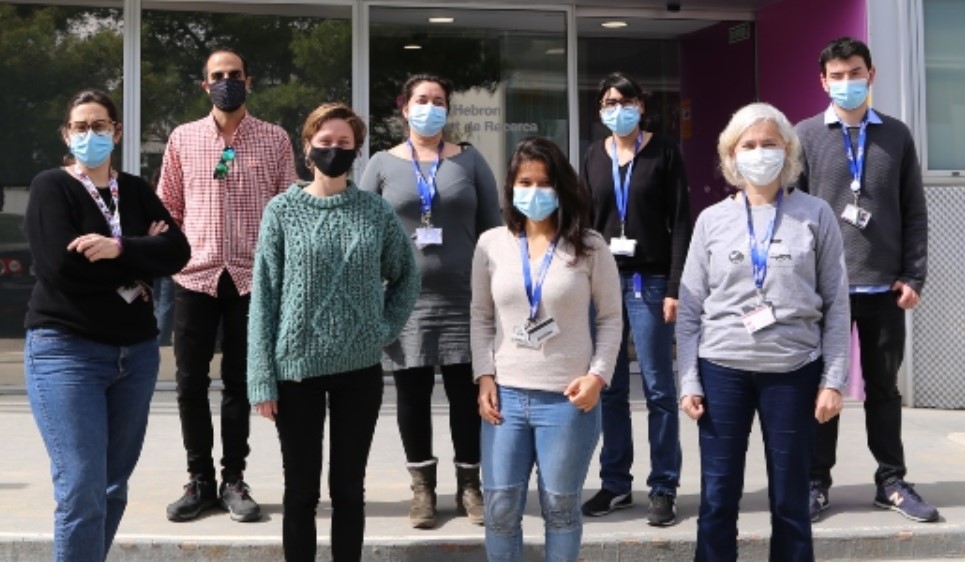
Researchers of two CIBER-BBN units of the ICTS (Singular Scientific and Technical Infrastructures) NANBIOSIS, led by Ibane Abasolo the U20 located in the VHIR and the U6 in ICMAB-CSIC have participated in a study to improve the treatment of lysosomal disorders.
In recent years, enzyme replacement therapies (ERTs) based on the systemic administration of a functional version of the defective enzyme have gained clinical relevance as a treatment for lysosomal storage disorders (LSD). However, the systemic administration of these recombinant enzymes has negative aspects, such as their low stability and inadequate distribution to the affected organs that result in a limited efficacy of ERT. In this context, the Vall d’Hebron Research Institute (VHIR) has led a study that has analysed the use of extracellular vesicles as vehicles for therapeutic enzymes in this type of lysosomal storage disorders. This work, in which the CIBBIM-Nanomedicine, Drug Delivery and Targeting, led by Dr. Ibane Abasolo and investigator Guillem Pintos, and Neurovascular Diseases, led by Dr. Anna Rosell, of the VHIR have participated, has been published in the Journal of Extracellular Vesicles.
Lysosomal storage disorders are rare congenital diseases caused by the lack or malfunction of proteins involved in lysosomal biogenesis and activity. In the absence of activity of these proteins, lysosomes accumulate waste molecules inside. Although there are more than seventy types of LSD – among which are the Gaucher, Fabry, Pompe and Sanfilippo syndromes – all of them share the abnormal accumulation of molecules such as glycoproteins, glycosaminoglycans and sphingolipids, something that in the majority of the cases generates serious clinical manifestations.
“The symptoms that the patient may experience depend on the specific disorder they develop, but in general LSDs results in a systemic disease that can affect multiple organs, including the central nervous system, liver, kidneys, heart and musculoskeletal system”, says Dr. Ibane Abasolo, principal investigator of the research group in CIBBIM-Nanomedicine, Drug Delivery and Targeting of the VHIR and author of the study. All LSDs are rare diseases and their low incidence makes it difficult to develop new therapies and evaluate them in clinical trials. For all these reasons, the VHIR has wanted to participate in this work, which has analysed and tested the viability of a new therapy for this type of lysosomal storage disorders. Specifically, for Fabry and Sanfilippo A diseases, two of the LSDs with the highest prevalence.
The study has obtained extracellular vesicles loaded with therapeutic enzymes directly from cells that are used for the production of recombinant protein. Extracellular vesicles have been shown to function as highly efficient protein delivery platforms, also in the brain, an organ that is not naturally accessed by systematically administered proteins. Dr. Abasolo considers that “the results obtained in this work will lay the foundations for the implementation of replacement therapy driven by extracellular vesicles in different LSDs, and will open the way for a possible treatment strategy in disorders with central nervous system involvement”.
The following centres have also participated in this work: Institute of Biotechnology and Biomedicine of the Autonomous University of Barcelona (IBB-UAB), Centre for Biomedical Research in Network of Bioengineering, Biomaterials and Nanomedicine (CIBER-BBN), Institute of Bioengineering of Catalonia (IBEC), Institute of Advanced Chemistry of Catalonia (IQAC-CSIC), and Centre for Biomedical Research in Network on Liver and Digestive Diseases (CIBEREHD).








